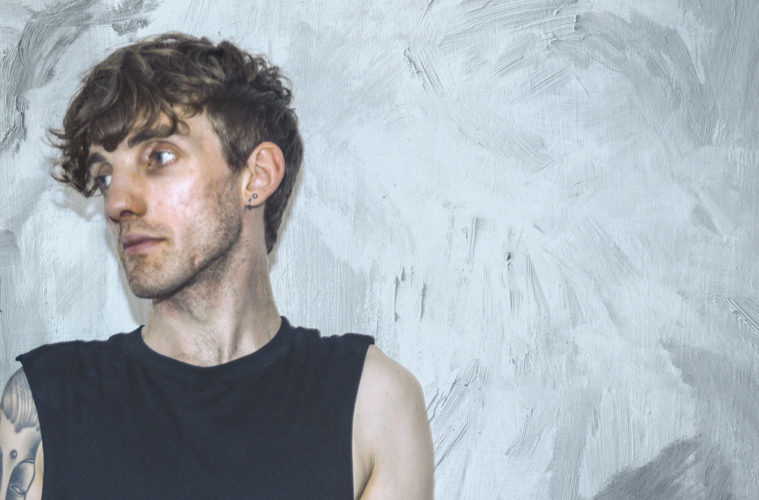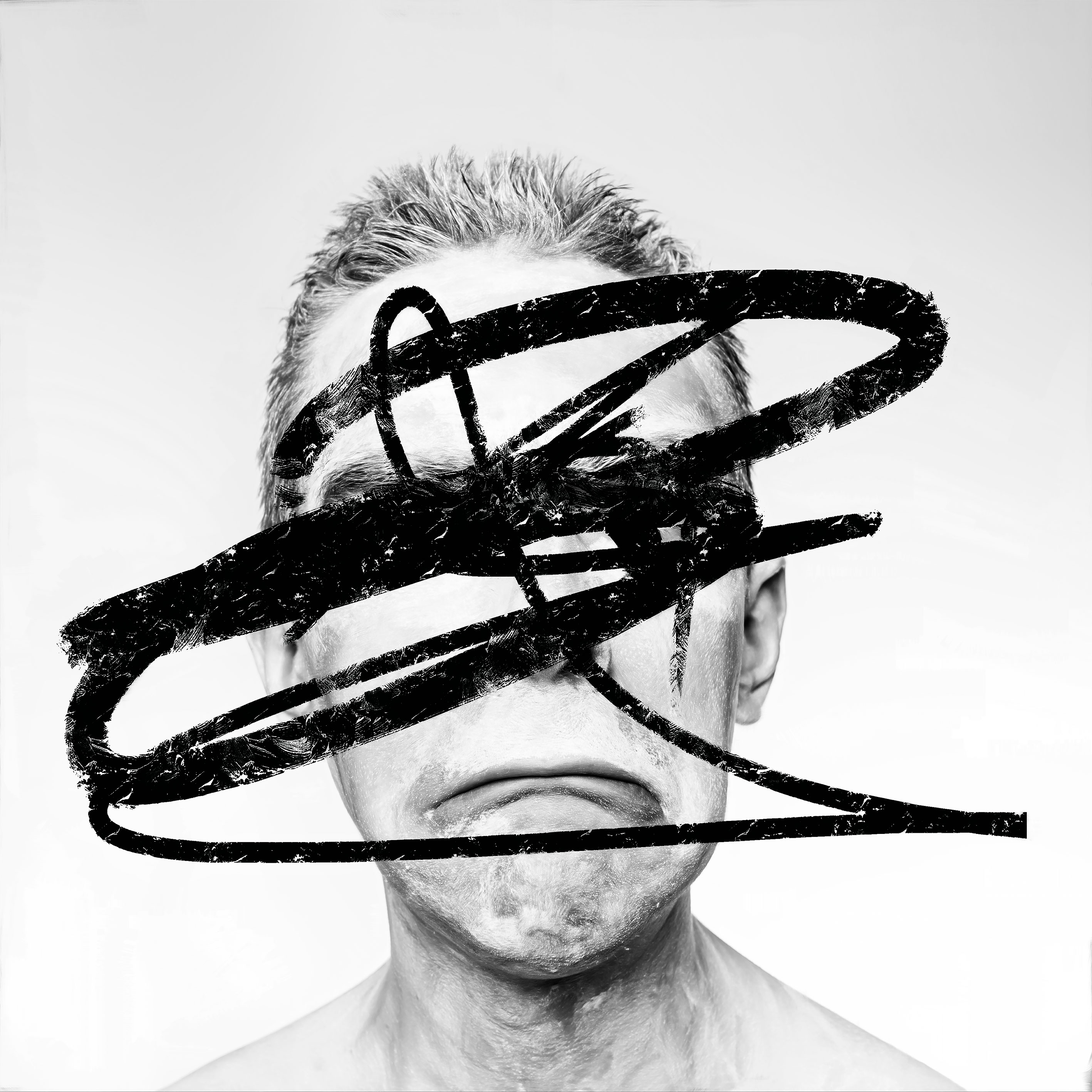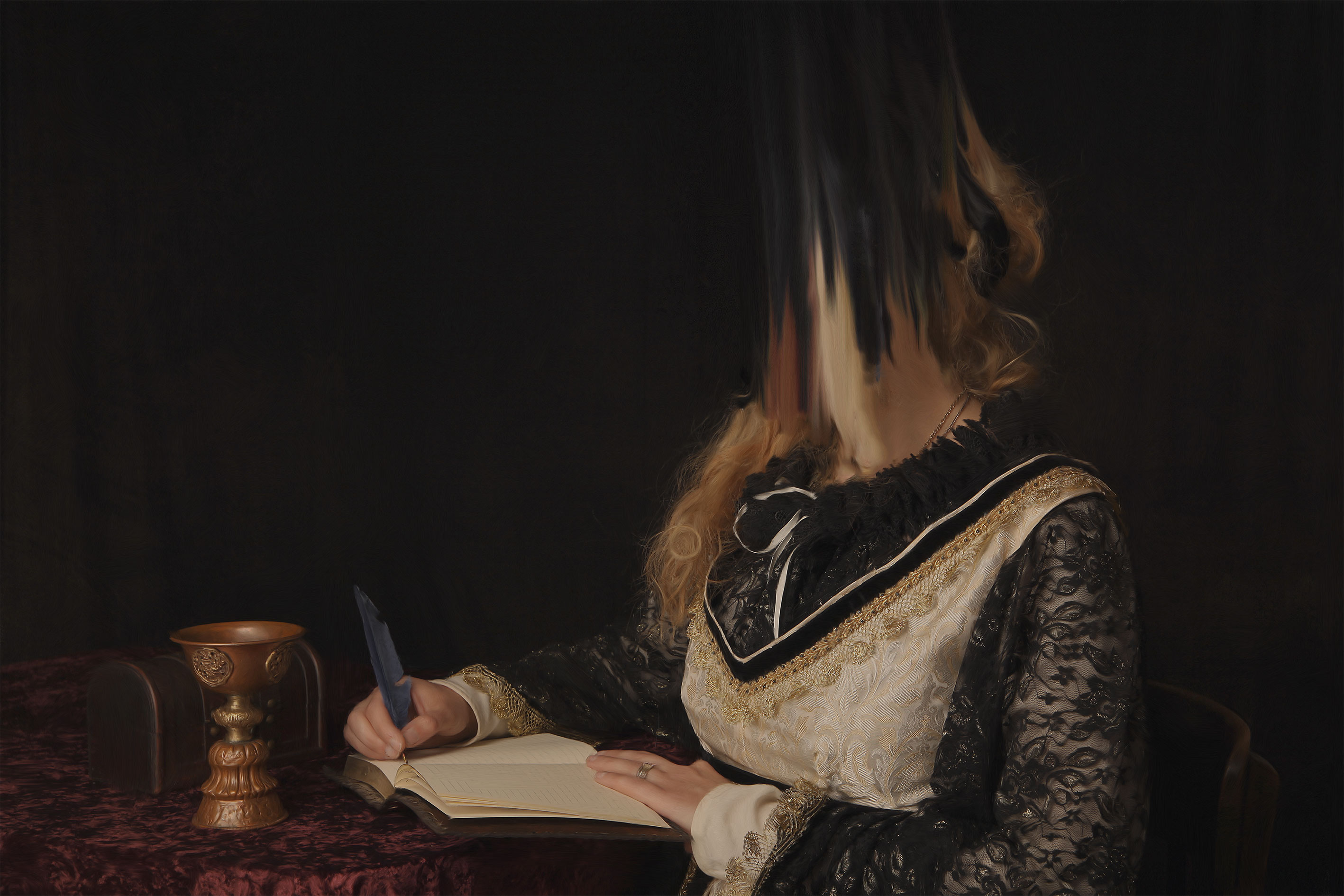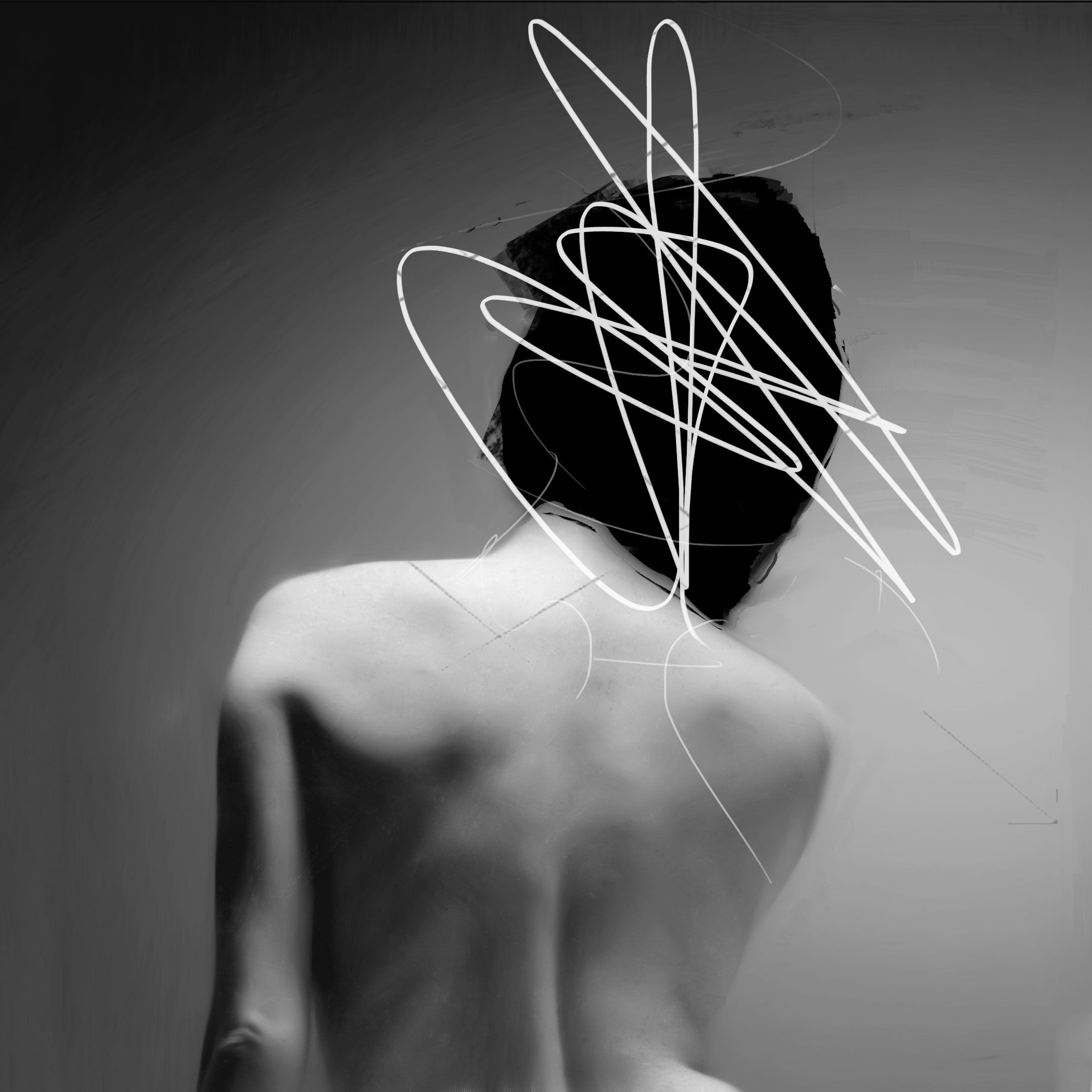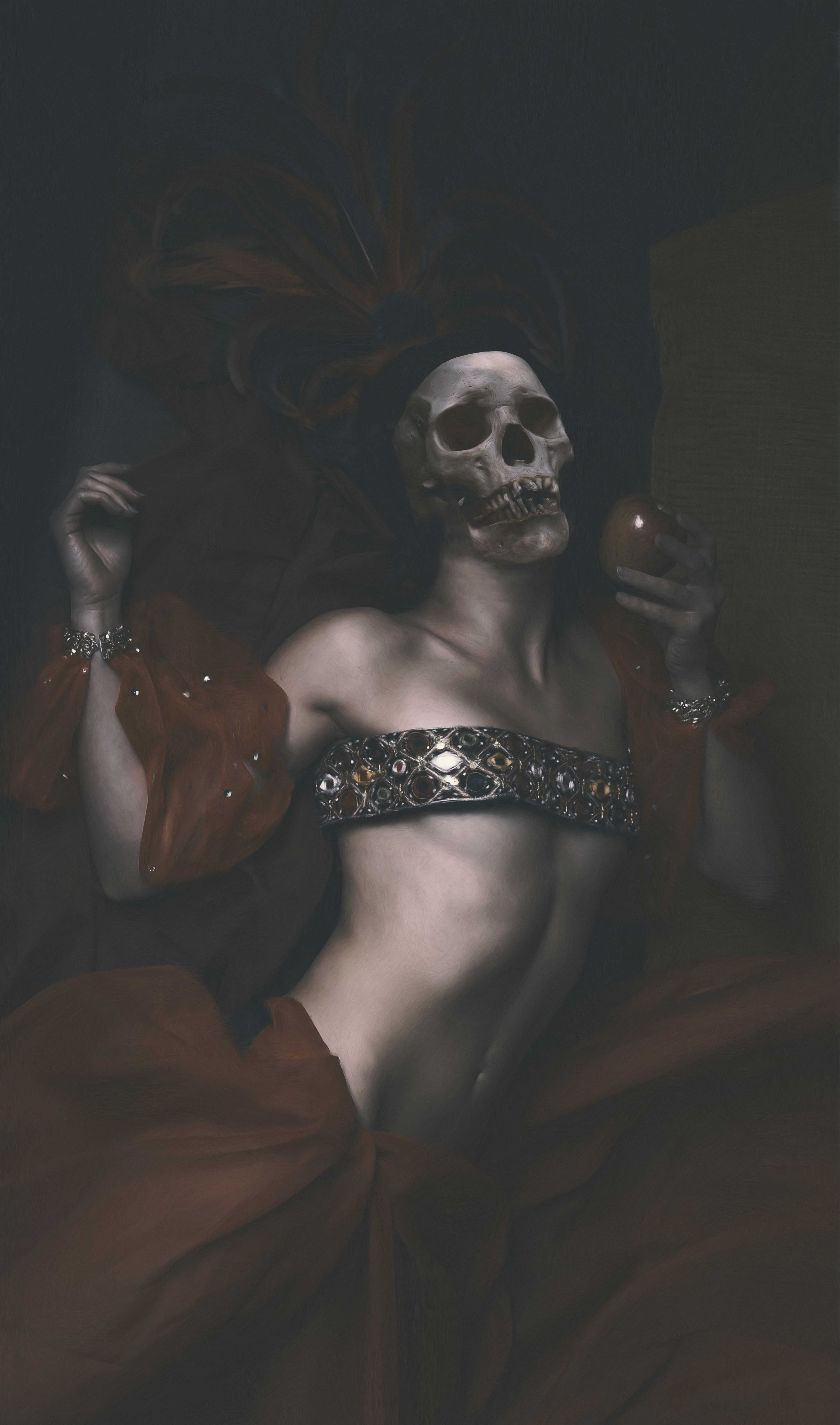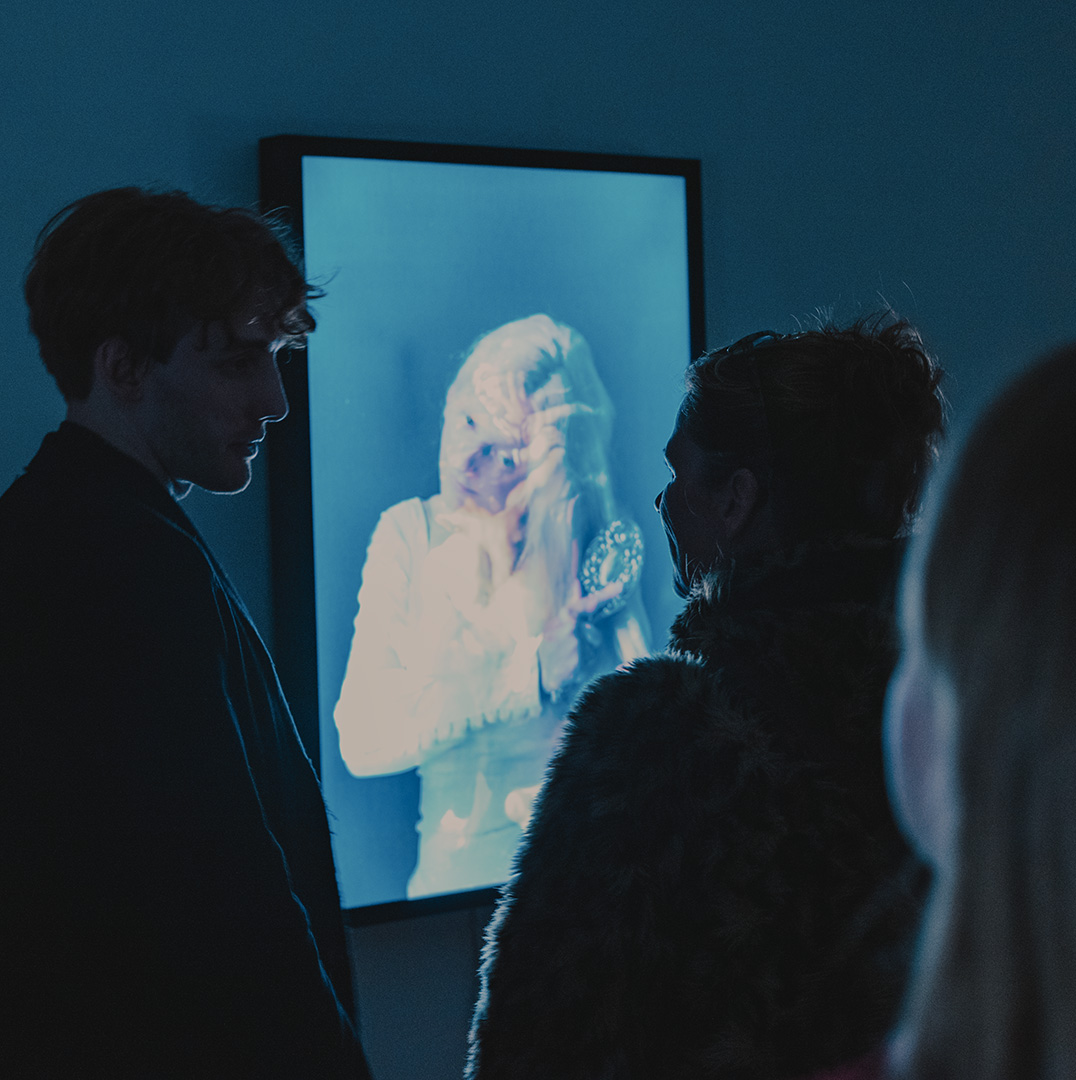Full-time artist Siris Hill suffered generalised anxiety, panic disorder, and depression. With support and self-help, he has turned his life around using art as a method of expressing himself and as a “way to let go”. Combining oil painting with digital technology, he has created a truly unique style. His work has been featured from the UK to New York, with many respectable art critics commenting he is on his way to world recognition. Siris Hill took time out of his busy schedule to discuss inspirations, technique, mental health, art career advice, and gives away his secret to business success…
Hi Siris Hill! When did you first realise you had a strong passion for art?
I have always felt connected to the arts. It started with music and film as a child; I found comfort in bands, musicians, and directors who made works that I felt connected to. I found myself through these mediums. It wasn’t until much later that I began painting. I was 24 and that’s when I started studying art history and fell in love with the 17th Century.
Would you mind explaining how you express yourself through your work?
In the last moments of my work after completing a piece, I take a breath. Sometimes I will leave it a day but then I smudge it or deface the identity of the subjects in some way, ripping parts of them away from themselves. Other times I take a more thoughtful approach to deliver the story. The weight of silence, for instance, was a piece I spent months planning to decide how to depict the inception of my panic attacks and the burden of living with this “thing” inside of me. I think a great deal about how to deliver an insight into myself whilst also achieving my own personal goals of creating a “great painting”. It’s my own silly goal to be a worthy student of Rembrandt and so this is my focus whilst creating. The narration and emotion comes through the planning and of course the way I place the brush strokes and structure my compositions.
What inspires you creatively?
I read and listen to a lot of philosophy and psychology lectures, as well as art history. Music is my main source of inspiration. It helps me bring feelings to the surface. Other than this I draw from my life experiences of my childhood and my mental health. I see my practice as a visual diary, a way to let go.
can you explain your artistic technique?
A happy accident, due to health problems presenting a hurdle between me and oil paints. I take traditional techniques of oil painting and have learnt to convert them to a digital medium using a graphics tablet and pen to track my movements and create brush strokes on software. This has led to all sorts of discoveries I wouldn’t have made as an oil painter and forced me to solve problems that have overall improved my skill as an artist.
Would you mind telling us a bit more about the mental health issues you have faced and what help, if any, you have received?
I was diagnosed with generalised anxiety, panic disorder, and depression. I’ve come to realise my mental health is similar to PTSD (post traumatic stress disorder). Everything is related to my childhood and experiences as a young adult. I have gone through CBT (cognitive behavioural therapy) three times and seen a handful of therapists. Two helped me a lot. One helped me to learn behaviour techniques and the other helped me to discover the roots of everything. After this, everything has been self-taught. I recommend medication but only if used alongside therapy and self-help because they will stop working eventually (in my observed experience).
What advice would you give to someone struggling with generalised anxiety, panic disorder, depression, or any other mental health issues?
Go back to basics and build up from there. A strong foundation and love or at least a hope for yourself is the starting block for rebuilding. What helped me turn my life around was a vision of a life I wanted and working backwards from there to create manageable stepping stones towards it. Stop making excuses for yourself, take on responsibility one thing at a time, and be harder on yourself from a kinder perspective. Drive and motivate yourself, don’t wait for anything. Learning discipline and taking responsibility for my life and what happened in it has been extremely eye opening.
Do you create art full-time?
Theoretically, yes. However, I am more of everything that comes from being an artist and running a business outside of actually creating work. I have made one painting this whole year due to how busy I have been with talks, projects around mental health, and establishing a network. I think people and artists especially underestimate what it takes to build a career out of making art. Sadly it’s not all drinking wine, staying in your studio all day, and dressing ridiculously (though I’m guilty of the last).
What’s the best piece of advice you would give someone looking to start a serious art career?
I would need a lot more space and time to write something of substance. Never listen to anyone but yourself when it comes to making art. Don’t ever compromise who you are to make money faster. This being said, business and people skills are essential. Find your niche. My day-to-day is spent reaching out to people, companies, and projects I think are suitable to my brand. I’ve talked my way into every opportunity I’ve been given so far, that’s my secret.
You’ve had your work featured in multiple UK exhibitions, and as far as New York! Many highly recognisable people within the art world have commented on your huge talent and how you are on your way to world recognition. how does this make you feel?
I am extremely grateful to be in the position I am in currently. I’ve not allowed any of this to sink in, I need the struggle to keep me going because I fear getting comfortable – how boring that would be? But I am honoured to have been invited out to New York, for the solo show I have in Norwich right now and for all the wonderful people I’ve met who have supported and pushed me forwards.
How do you decide on a price tag for your work?
Thankfully I have a good team of people around me who advise and help me figure this out. At the start, make sure your time and materials are covered and don’t expect much more. Your prices go up the more you are collected and your profile increases. Raise prices by a set percentage each year (maybe every six months) and stick to it. That’s a very brief insight but I’m happy to talk more to anyone who needs help.
What’s your dream when it comes to the art world?
To challenge it.
Siris Hill interview by Ben Farrin


